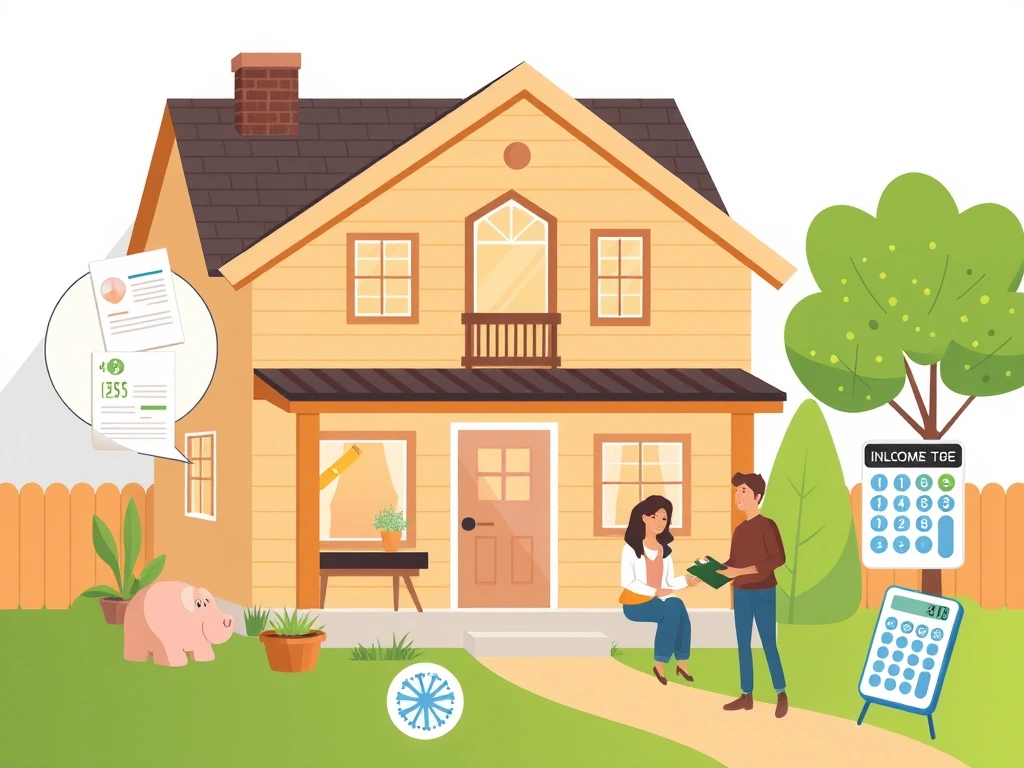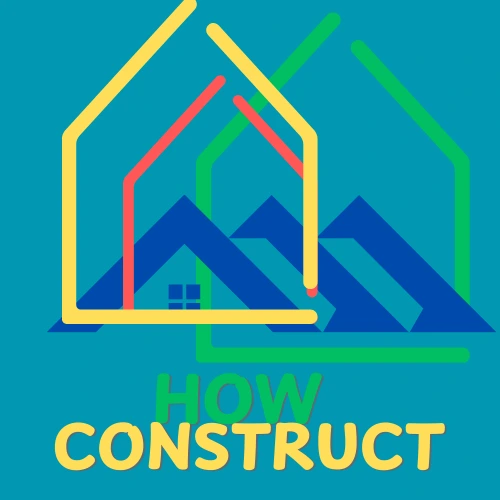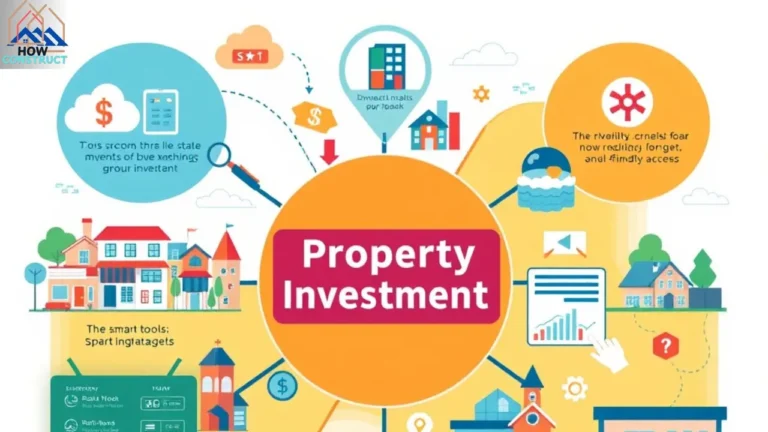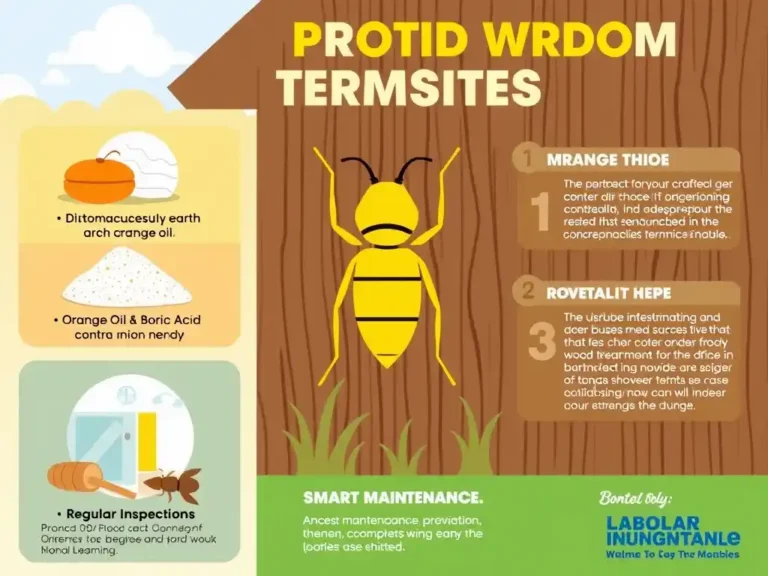An Explanation of Loaning to Buy a home in USA and Relevant terms
Also known as HUD, the U.S. Department of housing and urban Development was established in 1965 to develop national policies and programs. Its sole purpose is to address housing needs in the U.S. One of HUD’s primary missions is to create a suitable living environment for all Americans . It has also the duty to develop and improve the country’s communities and enforcing fair housing laws.
How does HUD help homebuyers and homeowners?
HUD helps people by administering a variety of programs that develop and support affordable housing. Specifically, HUD plays a large role in homeownership. It craft mechanisms for loans availability to lower- and moderate-income families program. HUD owns homes in many communities throughout the U.S. And offers them for sale at attractive prices and economical terms.
What is the FHA?
Now an agency within HUD, the federal housing administration was established in 1934 to advance opportunities for Americans to own homes. By providing private lenders with mortgage insurance, the FHA gives them the security they need to lend to first-time buyers who might not be able to qualify for conventional loans. Since its establishment in 1934, the federal housing administration (FHA) has insured more than 40 million home loans, facilitating homeownership for millions of Americans.
In recent years, the FHA has continued to play a vital role in the housing market. Over the past four fiscal years, the FHA has insured over 3.9 million mortgages, including nearly 767,000 forward mortgages in fiscal year 2024 alone. As of the end of fiscal year 2024, the FHA’s insured portfolio included approximately 7.81 million mortgages and 287,000 home equity conversion mortgages.
How can the FHA assist me in buying a home?
The FHA works to make homeownership a possibility for more Americans. With the FHA, you don’t need perfect credit or a high-paying job to qualify for a loan. The FHA also makes loans more accessible by requiring smaller down payments than conventional loans. In fact, an FHA down payment could be as little as a few months’ rent. And your monthly payments may not be much more than rent.
When the FHA funded?
Lender claims paid by the FHA mortgage insurance program are drawn from the mutual mortgage insurance fund. This fund is made up of premiums paid by FHA-insured loan borrowers. No tax dollars are used to fund the program.
Who can qualify for FHA loans?
Anyone who meets the credit requirements, can afford the mortgage payments and cash investment, and who plans to use the mortgaged property as a primary residence may apply for an FHA-insured loan.
What is the FHA loan limit?
FHA loan limits vary throughout the country, from $115,200 in low-cost areas to $208,800 in high cost areas. The loan maximums for multi-unit homes are higher than those for single units and also vary by area. Because these maximums are linked to the conforming loan limit and average area home prices, FHA loan limits are periodically subject to change. Ask your lender for details and confirmation of current limits.
What are the steps involved in the FHA loan process?
With the exception of a few additional forms, the FHA loan application process is similar to that of a conventional loan. With new automation measures, FHA loans may be originated more quickly than before. And, if you don’t prefer a face-to-face meeting, you can apply for an FHA loan via mail, telephone, the internet, or video conference.
How much income do I need to have to qualify for an FHA loan?
There is no minimum income requirement. But you must prove steady income for at least three years, and demonstrate that you’ve consistently paid your bills on time.
What qualifies as an income source for the FHA?
Seasonal pay, child support, retirement pension payments, unemployment compensation, VA benefits, military pay, social security income, alimony, and rent paid by family all qualify as income sources. Part-time pay, overtime, and bonus pay also count as long as they are steady. Special savings plans-such as those set up by a church or community association-qualify, too. Income type is not as important as income steadiness with the FHA.
Can I carry debt and still qualify for FHA loans?
Yes. Short-term debt doesn’t count as long as it can be paid off within 10 months. And some regular expenses, like child care costs, are not considered debt. Talk to your lender or real estate agent about meeting the FHA debt-to-income ratio.
What is the debt-to-income ratio for FHA loans?
The FHA allows you to use 29% of your income towards housing costs and 41% towards housing expenses and other long-term debt. With a conventional loan, this qualifying ratio allows only 28% toward housing and 36% towards housing and other debt.
Can I exceed this ratio?
You may qualify to succeed if you have:
Define considerable down payment
Eligibility to pay more toward your housing expenses
Have cash reserves
Net worth enough to repay the mortgage regardless of income
Proof of acceptable credit history or limited credit use
Less-than-maximum mortgage terms
Funds provided by an organization
A decrease in monthly housing expenses

How large a down payment do I need with an FHA’s loan?
You must have an initial-payment of at least 3% of the procurement price of the home. Most cheap loan programs presented by private lenders necessitate between a 3%-5% down payment, with a bottom of 3% coming directly from the borrower’s own funds.
What can I use to pay the down payment and closing costs of an FHA loan?
In addition to your own assets, you may custom cash gifts or expese from a private investments club. If you can perform certain maintenance manually, your labor may be castoff as part of a down payment (called “sweat equity”), if you are making a rent buying, disbursing extra rent to the seller may also be considered the same as hoarding cash.
How does my credit history impact my ability to qualify?
The FHA is generally more moderate than conservative lenders in its commessioning procedures. In fact, the FHA Give you to re-setup credit if:
- Two years have passed since a liquidation has been settled
- Judgments have been paid
- Any unpaid tax liens have been contented or suitable arrangements have been made to setup a reimbursement plan with the IRS or state department of revenue
- Three years have passed since a foreclosure or a deed-in-lieu has been resolved
Can I qualify for an FHA loan without a credit history?
Yes. If you desire to pay amount overdue in cash or are too new to have established credit, there are other ways to verify your eligibility. Talk to your lender for details.
What types of closing costs are associated with FHA-insured loans?
Except for the tallying of an FHA mortgage indemnity premium, FHA closing costs are similar to those of a conventional loan defined in upcoming commentary. The FHA necessitates a sole, sweeping mortgage insurance premium equal to 2.25% of the mortgage to be paid at final (or 1.75% if you complete the help program). This preliminary premium may be partly returned if the loan is paid in full during the first seven years of the loan term. After closing, you will then be liable for an annual premium — paid monthly — if your mortgage is over 15 years or if you have a 15-year loan with an LTV greater than 90%.
Can I roll closing costs into my FHA loan?
No. Though you can’t roll closing costs into your FHA loan, you may be able to consume the amount you pay for them to help satisfy the down payment requirement. Ask your lender for details.
Are FHA loans assumable?
Yes. You can assume an existing FHA-insured loan, or, if you are the one deciding to sell, allow a buyer to assume yours. Assuming a loan can be very useful, since the process is stream lined and less costly compared to that for a new loan. Also, assuming a loan can often result in a lower interest rate. The application process comprises basically of a credit check and no property appraisal is necessitated. And you must demonstrate that you have enough income to support the mortgage loan. In this way, commessioning to assume a loan is similar to qualification requirements for a new one.
What should I do if I can’t make a payment on my loan?
Call or write to your lender as soon as possible. Clearly describe the situation and be prepared to provide him or her with financial information.
Are there any options if I fall behind on my loan payments?
Yes. Talk to your lender or a HUD-approved counseling agency for details. Listed below are a few options that may help you get back on track.
For FHA loans:
- Proof of residence
2. Make a firm contact to HUD-approved counseling agency (1-800-569-4287 or dial: 1-800-877-8339) and cooperate with the counselor/lender trying to assist you.
3. The parent department HUD has variety of special loss mitigation programs available for you
Special forbearance: If your lender will arrange for a revised repayment plan which may include temporary decrease or delay of payments; you can qualify by having an automatic reduction in your earnings or increase in living expenses.
“Mortgage modification: Give you to refund debt and/or prolong the term of the mortgage loan which may decrease your monthly expenses; you can succeed if you have recovered from financial problems, but net income is less than before.
- Partial claim: your lender may be able to help you obtain an interest-free loan from
HUD to bring your mortgage current.
- Pre-foreclosure sale: contracts you to sell your property and pay off your mortgage loan to avoid foreclosure.
- Deed-in-lieu of foreclosure: Give you willingly “give back” your property to the lender; it won’t save your house but will help you avoid the costs, time, and effort of the foreclosure process.
- If you are having difficulty with an uncooperative lender or feel your loan servicer is not providing you with the most effective loss mitigation alternatives, call the FHA loss mitigation center at 1-888-297-8685 for added help.
For conventional loans:
• talk to your lender about specific loss mitigation options. Work directly with him or her to request a “workout packet.” a secondary lender, like Fannie Mae or Freddie mac, may have purchased your loan. Your lender can follow the appropriate regulations set by Fannie or Freddie to determine the best option for your situation.
Fannie Mea does not deal directly with the borrower. They work with the lender to deter mine the loss mitigation program that best fits your needs.
Freddie mac, like Fannie Mae, will usually only work with the loan servicer. However, if you encounter problems with your lender during the loss mitigation process, you can call customer service for help at 1-800-freddie (1-800-373-3343).
In any loss mitigation situation, it is important to remember a few helpful hints:
- Explore every reasonable alternative to avoid losing your home, but beware of scams. For example, watch out ton equity skimming: a buyer provides to repay the mortgage or sell the property if you sign over the deed and move out. Phony counseling agencies-, offer counseling for a fee when it is often given at no charge. – don’t sign anything you don’t understand.
What is mortgage insurance?
Mortgage insurance is a plan that safeguards lenders against some or most of the result from defaulting on home mortgages. It’s required primarily for borrowers making a down payment of less than 20%.
How does mortgage insurance work? Is it like home or auto insurance?
Like home or auto insurance, mortgage insurance necessitates payment of a premium, is for protection against loss, and is used in the event of an emergency. If a borrower can’t repay an insured mortgage loan as agreed, the lender may foreclose on the property and file a claim with the mortgage insurer for some or most of the total losses.
Do I need mortgage insurance? How do I get it?
You need mortgage insurance only if you plan to make a down payment of less than 20% of the purchase price of the home. The FHA provides several loan programs that may meet your needs. Ask your lender for details.
How can I receive a discount on the FHA initial mortgage insurance premium?
Ask your real estate agent or lender for information on the help program from the FHA.
Help – homebuyer education learning program – is structured to help people like you begin the home buying process. It covers such topics as budgeting, finding a home, getting a loan, and home maintenance. In most cases, ctitle you to a reduction in the initial FHA mortgage insurance premium from 2.25% to 1.75% of the purchase price of your new home
What is PMI?
PMI stands for private mortgage insurance or insurer, these are privately-owned companies that provide mortgage insurance. They offer both standard and special affordable programs for borrowers. These companies larger down payment requirements than the FHA, but their premiums are often lower and they insure loans that exceed the FHA limit.
What is a 203(b) loan?
This is the most commonly applied FHA program, it provides a low down payment stretchable commissioning regulations, scarce lender’s fees, and a concentrated loan amount.
What is a 203(k) loan?
This is a loan that authorizes the homebuyer to fund both the purchase and revamping of a home through a sole mortgage. A percentage of the loan is used to pay off the seller due mortgage and the rest is placed in an escrow account and released as revamping is finished. Basic regulations for 203(k) loans are as follows-
- The home must be at least one year ancient.
- The cost of revamping must be as a minimum as $5,000, but the total property value-including the cost of maintenances-must fall within the FHA maximum mortgage limit.
- The 203(k) loan must track many of the 203(b) entitlement requirements. Talk to your lender about explicit improvement, energy efficiency, and structural regulations.
What is an energy efficient mortgage (EEM)?
The energy efficient mortgage gives a homebuyer to protect future expense on utility bills. This is done by financing the cost of energy-efficiency to a new or existing home as part of an FHA-insured home purchase the EEM can be used with both 203(b) and 203(k) loans. Basic regulations for EEMs are as follows:
The cost of improvements must be determined by a home energy rating system or by an energy consultant. This cost must be less than the anticipated savings from the improvements. One- and two-unit new or existing homes are eligible; condos are not. The improvements fund may be 5% of property value or $4,000, whichever is greater. The total must fall within the FHA loan limit.
What is the FHA bridal registry program?
Just as you might register at a department store for wedding gifts, the bridal registry program Give couples to register with a lender and open up an interest-bearing account. Family and friends can deposit wedding gifts of cash into this account. These gifts can then be applied toward a down payment on a home„ ask your lender for details.
What is a title loan?
Given by a lender and insured by the FHA, a title I loan is recycled to make no luxury renovations and repairs to a home. It provides a flexible interest-rate and repayment program. Loans are rare between $5,000 and $20,000. If the loan amount is under $7,500, no lien is required on your home. Ask your lender for details.
What other loan products or programs does the FHA offer?
The FHA also insures loans for the procurement or revamping of industrial housing, condominiums, and cooperatives. It also has special programs for urban areas, disaster victims, and members of the armed forces. Insurance for arms is also available from the FHA.
How can I obtain an FHA-insured loan?
Contact an FHA-approved lender such as a participating mortgage company, bank, savings and loan association, or thrift. For more information on the FHA and how you can obtain an FHA loan, visit the HUD web site at http://www.HUD.gov or call a HUD-approved counseling agency at 1-800-569-4287 or dial-. 1-800-877-8339.
How can I contact HUD?
Visit the web site at http://www.HUD.gov or look in the phone book “blue pages” for a listing of the HUD office near you.
203(b): FHA program which provides mortgage insurance to protect lenders from default; used to fund the purchase of new or existing one- to four family housing; characterized by low down payment, flexible commissioning rules, scarce fees, and a limit on maximum loan amount
203(k): this FHA mortgage insurance program authorizes homebuyers to fund both the purchase of a house and the cost of its revamping through a sole mortgage loan.

RELEVANT TERMS TO LOANING OF HOME
Amenity: a feature of the home or property that serves as a benefit to the buyer but that is not necessary to its use: may be natural (like location, woods, water) or man-made (like a swimming pool or garden) amortization: repayment of a mortgage loan through monthly installments of principal and interest? The monthly payment amount is based on a schedule that will allow you to own your home at the end of a specific time period (for example, 15 or 30 years)
Annual percentage rate (APR): calculated by using a standard formula, the APR shows the cost of a loan; expressed as a yearly interest rate, it includes the interest, points, mortgage insurance, and other fees associated with the loan application: the first step in the official loan approval process? This form is used to record important information about the potential borrower necessary to the underwriting process appraisal: a document that gives an estimate of a property’s fair market value? An appraisal is generally required by a lender before loan approval to ensure that the mortgage loan amount is not more than the value of the property
Appraiser:
It is a qualified individual who uses his or her experience and knowledge to prepare the appraisal estimate
Arm: adjustable rate mortgage? A mortgage loan subject to changes in interest rates? When rates change, arm monthly payments increase or decrease at intervals determined by the lender; the change in monthly payment amount, however, is usually subject to a cap assessor: a government official who is responsible for determining the value of a property for the purpose of taxation assumable mortgage: a mortgage that can be transferred from a seller to a buyer? Once the loan is assumed by the buyer, the seller is no longer responsible for repaying it? There may be a fee and/or a credit package involved in the transfer of an assumable mortgage
Balloon mortgage: a mortgage that typically offers low rates for an initial period of time (usually 5, 7, or 10) years? After that time period elapses, the balance is due or is refinanced by the borrower
Bankruptcy: a federal law whereby a person’s assets are turned over to a trustee and used to pay off outstanding debts? This usually occurs when someone owes more than they have the ability to repay borrower? A person who has been approved to receive a loan and is then obligated to repay it and any additional fees according to the loan terms
Bridal registry: a program supported by the FHA that allows couples to open (“register” for) a bridal registry account into which family and friends can deposit gifts of cash? The funds in this account may then be used for a down payment on a house
Building code:
Agreed upon safety standards within a specific area. A building code is a regulation that determines the design, construction, and materials used in building
Budget: a detailed record of all income earned and spent during a specific period of time
Cap: a limit, such as that placed on an adjustable rate mortgage. It determines how much a monthly payment or interest rate can increase or decrease
Cash reserves: a cash amount sometimes required to be held in reserve in addition to the down payment
Closing costs: The amount is determined by the lender credit history. It is further used to determine ability to qualify for a mortgage loan
Certificate of title: This document is provided by a qualified source (such as a title company) . It shows that the property legally belongs to the current owner, before the title is transferred at closing. It should be clear and free of all liens or other claims

Loaning Related Terminologies
Closing: Also known as settlement. This is the time at which the property is formally sold and transferred from the seller to the buyer. It is at this time that the borrower takes on the loan obligation. It pays all closing costs, and receives title from the seller
Closing costs: Customary costs above and beyond the sale price of the property . It must be paid to cover the transfer of ownership at closing. Basically, these costs generally vary by geographic location and are typically described to the borrower after submission of a loan application
Commission: an amount, usually a percentage of the property sales price that is collected by a real estate professional as a fee for negotiating the transaction
Condominium: a form of ownership in which individuals purchase and own a unit of housing in a multi-unit complex; the owner also shares financial responsibility for common areas conventional loan.- a private sector loan, one that is not guaranteed or insured by the U.S. government
Cooperative (co-op):
Residents purchase stock in a cooperative corporation that owns a structure; each stockholder is then entitled to live in a specific unit of the structure and is responsible for paying a portion of the loan
Credit history: history of an individual’s debt payment; lenders use this information to gauge a potential borrower’s ability to repay a loan
Report: a record that lists all past and present debts and the timeliness of their repayment; it documents an individual’s credit history
Credit bureau score: a number representing the possibility a borrower may default; it is based upon
Debt-to-income ratio: a comparison of gross income to housing and non-housing expenses; with the FHA, the monthly mortgage payment should be no more than 29% of monthly gross income (before taxes) and the mortgage payment combined with non-housing debts should not exceed 41% of income
Deed: the document that transfers ownership of a properly
Deed-in-lieu: to avoid foreclosure (“in lieu” of foreclosure), a deed is given to the lender to fulfill the obligation to repay the debt; this process doesn’t allow the borrower to remain in the house but helps avoid the costs, time, and effort associated with foreclosure
Terminologies
Default: the inability to pay monthly mortgage payments in a timely manner or to otherwise meet the mortgage terms
Delinquency: failure of a borrower to make timely mortgage payments under a loan agreement
Discount point: normally paid at closing and generally calculated to be equivalent to 1% of the total loan amount, discount points are paid to reduce the interest rate on a loan
Down payment: the portion of a home’s purchase price that is paid in cash and is not part of the mortgage loan
The Basics of Home Buying
Earnest money: money put down by a potential buyer to show that he or she is serious about purchasing the home, it becomes part of the down payment if the offer is accepted, is returned if the offer is rejected, or is forfeited if the buyer pulls out of the deal
EEM: energy efficient mortgage; an FHA program that helps homebuyers save money on utility bills by enabling them to finance the cost of adding energy efficiency features to a new or existing home as part of the home purchase equity-, an owner’s financial interest in a property; calculated by subtracting the amount still owed on the mortgage loan(s) from the fair market value of the property
Escrow account: a separate account into which the lender puts a portion of each monthly mortgage payment; an escrow account provides the funds needed for such expenses as property taxes, homeowner’s insurance, mortgage insurance, etc.
Fair housing act: a law that prohibits discrimination in all facets of the home buying process on the basis of race, color, national origin, religion, sex, familial status, or disability
Ginnie Mae: government national mortgage association (GNMA); a government-owned corporation overseen by the U.S. Department of housing and urban development. Ginnie Mae pools FHA-insured and VA-guaranteed loans to back securities for private investment. As with Fannie Mae and Freddie mac, the investment fund that may then be lent to eligible borrowers by lenders
Fair market value: the hypothetical price that a willing buyer and seller will agree upon when they are acting freely, carefully, and with complete knowledge of the situation
Good faith estimate:
It is an estimate of all closing fees including pre-paid and escrow items as well as lender charges; . May be given to the borrower within three days after submission of a loan application
Fannie Mae: federal national mortgage association (FNMA); a federally-chartered enterprise owned by private stockholders that purchases residential mortgages and converts them into securities for sale to investors; by purchasing mortgages, Fannie Mae supplies funds that lenders may loan to potential homebuyers
FHA: federal housing administration; established in 1934 to advance homeownership opportunities for all Americans. It also assists homebuyers by providing mortgage insurance to lenders. It to cover most losses that may occur when a borrower defaults. This encourages lenders to make loans to borrowers who might not qualify for conventional mortgages
Fixed-rate mortgage: a mortgage with payments that remain the same throughout the life of the loan. Because of the interest rate and other terms are fixed.
Flood insurance: insurance that protects homeowners against losses from a flood; if a home is located in a flood plain, the lender will require flood insurance before approving a loan
Foreclosure: a legal process in which mortgaged property is sold to pay the loan of the defaulting borrower
Freddie Mac: federal home loan mortgage
Corporation (FHLM)
a federally-chartered corporation that purchases residential mortgages, securitizes them, and sells them to investors. This provides lenders with funds for new homebuyers
Help: homebuyer education learning program, an educational program from the FHA. It is basic pillar that provide counselling to people about the home buying processes. It also helps to covers topics like budgeting, finding a home, getting a loan, and home maintenance. As such in most cases, completion of the program may entitle the homebuyer to a reduced initial FHA mortgage insurance premium-from 2,25% to 1.75% of the home purchase price. The home inspection is an examination of the structure and mechanical systems to determine a home’s safety. It guides the potential homebuyer aware of any repairs that maybe needed

Home warranty:
offers protection for mechanical systems and attached appliances against unexpected repairs not covered by homeowner’s insurance; coverage extends over a specific time period and does not cover the home’s structure
Homeowner’s insurance:
an insurance policy that combines protection against damage to a dwelling and its contents with protection against claims of negligence or inappropriate action that result in someone’s injury or property damage
Housing counseling agency:
provides counseling and assistance to individuals on a variety of issues, including loan default, fair housing, and home buying
HUD: the U.S. Department of housing and urban development; established in 1965, HUD works to create a decent home and suitable living environment for all Americans; it does this by addressing housing needs, improving and developing American communities, and enforcing fair housing laws
HUD-l statement: Also known as the “settlement sheet,”. It itemizes all closing costs; must be given to the borrower at or before closing
HVAC: heating, ventilation and air conditioning; a home’s heating and cooling system
Index: a measurement used by lenders to determine changes to the interest rate charged on an adjustable rate mortgage
Inflation:
the number of dollars in circulation exceeds the amount of goods and services available for purchase- inflation results in a decrease in the dollar’s value
Interest: a fee charged for the use of money
Interest rate: the amount of interest charged on a monthly loan payment; usually expressed as a percentage
Lease purchase: Assists low-to moderate-income homebuyers to lease a home with an option to buy. The rent payment consists of the monthly rental payment plus an additional amount. Which is credited to an account for use as a down payment
Lien: It is a legal claim against property which must be balanced when the property is sell
Loan: the money borrowed that is usually repaid with interest
Loan fraud: purposely giving incorrect information on a loan application in order to better qualify for a loan: may result in civil liability or criminal penalties
Loan-to-value (LTV) ratio:
It is obtained by dividing the amount-borrowed to the price of the home. When the LTV is higher, the less cash a borrower is to pay as down payment
Lock-in: As such the interest rates change frequently. So, many lender offers an interest rate locked. The guarantees a specific interest rate if the loan is closed within a specific time
Loss mitigation: It is a process to avoid foreclosure. The lender tries to help a borrower who has been unable to make loan payments and is in danger of defaulting on his or her loan
The Basics terms used for Home Buying
Insurance: It is a protection against a specific loss. And is secured by the payment of a regularly scheduled premium
Judgment: a legal decision; when requiring debt repayment, a judgment may include a property lien that secures the creditor’s claim by providing a collateral source
Margin: an amount the lender adds to an index to determine the interest rate on an adjustable rate mortgage
Mortgage: a lien on the property that secures the promise to repay a loan
Mortgage banker: a company that originates loans and resells them to secondary mortgage lenders like Fannie Mae or Freddie Mac
broker: a firm that originates and processes loans for a number of lenders
Insurance: It is a policy that protects lenders against some or most of the losses. It prevents losses which occur when a borrower defaults on a mortgage loan. Insurance of mortgage required primarily for borrowers with a down payment of less than 20% of the home’s purchase price
Mortgage insurance premium (MIP); a monthly payment-usually part of the mortgage payment paid by a borrower for mortgage insurance loss mitigation option
Mortgage modification: a borrower to refinance and/or extend the term of the mortgage loan and thus reduce the monthly payments
Offer: indication by a potential buyer of a willingness to purchase a home at a specific price; generally put forth in writing
Origination: the process of preparing, submitting, and evaluating a loan application; generally includes a credit check, verification of employment, and a property appraisal with down payments of less than 20% of a purchase price
The Basics nomenclature for Home Buying
Pre-approve-. Lender commits to lend to a potential borrower; recommitment remains as long as borrower still meets the qualification requirements at the time of purchase
Pre-foreclosure sale: allows a defaulting borrow to sell the mortgaged property to satisfy the loan avoid foreclosure
Pre-qualify: a lender informally determines the maximum amount an individual is eligible to borrow
Premium: an amount paid on a regular schedule by a policyholder that maintains insurance coverage
Prepayment: payment of the mortgage loan before the scheduled due date; may be subject to a prepayment penalty
Principal: the amount borrowed from a lender; doesn’t include interest or additional fees
Origination fee: The fee for disbursing a loan is calculated in the form of points and paid at closing
Radon: a radioactive gas found in some homes that, if occurring in strong enough concentrations, can cause health problems
Real estate agent:
An individual who has license to negotiate and arrange real estate sales. It works for a real estate
Partial claim-. A loss mitigation option offered by the FHA. It allows a borrower, with help from a lender, to get an interest-free loan from HUD. It makes mortgage payments up to date
PITI: It includes principal, interest, taxes and insurance. These are four elements of a monthly mortgage payment; payments of principal and interest go directly towards repaying the loan. While the portion that covers taxes and insurance goes into an escrow account to cover the fees when they are due
PMl: private mortgage insurance, privately owned companies that offer standard mortgage insurance programs for qualified borrower’s estate broker
Realtor: a real estate agent or broker who is a national association of realtors member of the and its local and state associations obtaining another,
Refinancing: Refinancing is paying off ones loan . it is generally done to secure terms (like a lower interest rate)
Rehabilitation mortgage: a mortgage that covers the costs of rehabilitating (repairing or improving) a property. It accesses some rehabilitation mortgage-like the FHA’s 203(k). Which allow a borrower to roll the costs of rehabilitation and home purchase into one mortgage loan.
RESPA: real estate settlement procedures act; a law protecting consumers from abuses during the residential real estate purchase and loan process by requiring lenders to disclose all settlement costs, practices, and relationships

Some Nomenclature for Home Buying
Settlement: Other name for closing special forbearance: a loss mitigation option where the lender arranges a revised repayment plan for the borrower. Which may include a temporary reduction or suspension of monthly loan payments
Subordinate: to place in a rank of lesser importance or to make one claim secondary to another
Survey: a property diagram that indicates legal boundaries, easements, encroachments, rights of way, improvement locations, etc. Initial period and then adjusts to another rate that lasts for the term of the loan
Underwriting: the process of analyzing a loan application to determine the amount of risk involved in making the loan. It includes a review of the potential borrower’s credit history and a judgment of the property value
VA: department of Veteran’s affairs: a federal agency which guarantees loans made to veterans. It is similar to mortgage insurance, a loan guarantee protects lenders against loss that may result from a borrower default
Sweat equity: using labor to build or improve a property as part of the down payment
Title i: an FHA-insured loan that allows a borrower to make non-luxury improvements (like renovations or repairs) to their home. If title i loans less than $7,500 don’t require a property lien
Title insurance: The insurance that protects the lender against any claims that arise from arguments about ownership of the property
search: a check of public records to be sure that the seller is the recognized owner of the real estate. It is added that there are no unsettled liens or other claims against the property
Truth-in-lending: a federal law obligating a lender to give full written disclosure of all fees, terms, and conditions associated with the loan
Two-step mortgage: a type of adjustable rate mortgage that has one interest rate for a predetermined













